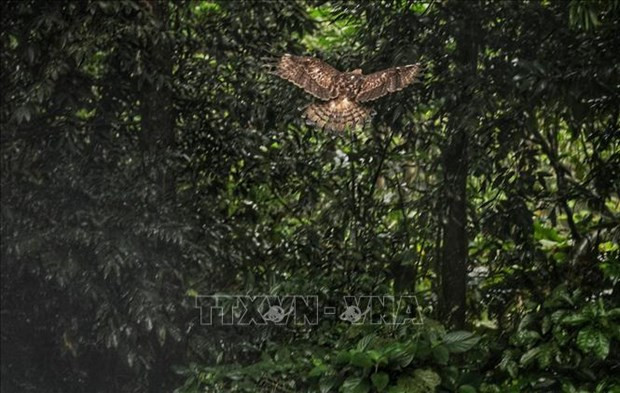 A hawk flies away after being released back to the nature at the Cuc Phuong National Park. (Photo: VNA)
A hawk flies away after being released back to the nature at the Cuc Phuong National Park. (Photo: VNA)Co-organised by the ATP, People and Nature Reconciliation(PanNature), and Animals Asia Foundation (AAF), the event aimed to prevent the illegalkeeping of wild animals as pets.
Discussion among participating experts revolved around suchkey issues as related health risks, legal aspects, wildlife conservation, andanimal welfare.
Assessing effects of the trend, Thuy said many risks for notonly the animals and their keepers but also the ecological environment havebeen warned.
In fact, more than 70 percent of emerging dangerousinfectious diseases in humans are of animal origin. Not to mention, in fact somewild animals attack people, causing unpredictable injuries.
From the animal welfare perspective, Nguyen Tam Thanh, arepresentative of the AAF, noted that demand for wildlife pets will drive theneed to hunt and trade these species, reducing their numbers and even pushingthem to the edge of extinction.
Captivity is likely to put the animals at risk due todifferences in nutrition, living conditions, and psychological factors, amongothers, he added.
Experts took the occasion to put forth a series of solutionsto curb the illegal activity, including building a clear legal framework,boosting relevant management, and building policies based on domestic andinternational data. Cooperation and communications activities are alsonecessary, they said.
They noted there is a need for stronger communications aboutthe transmission of viruses and drug resistance from wild animals to humans onTV and social networks./.





























